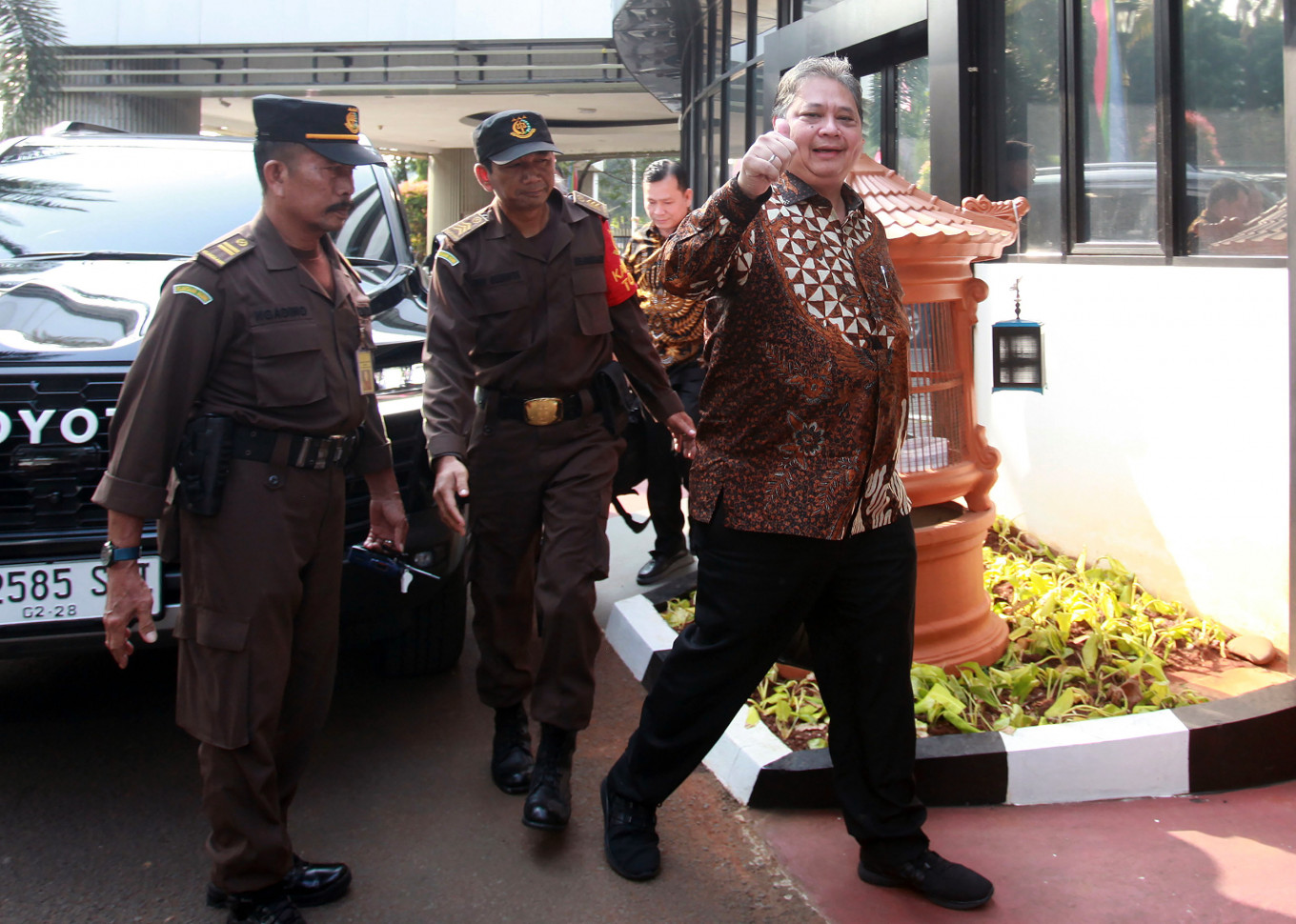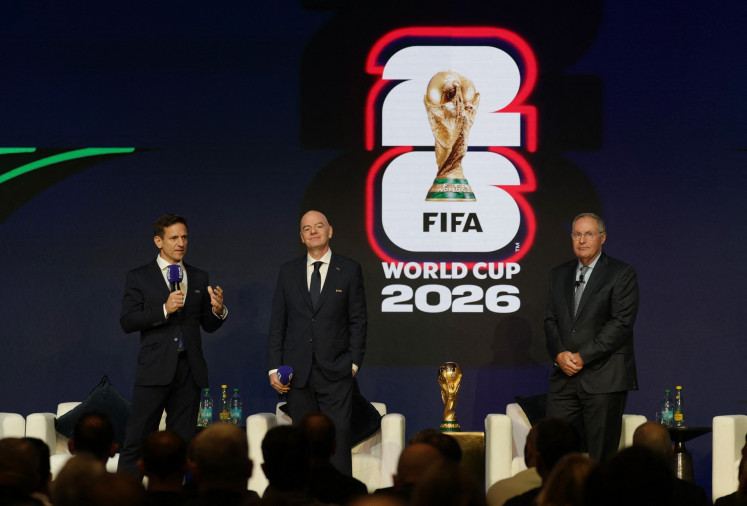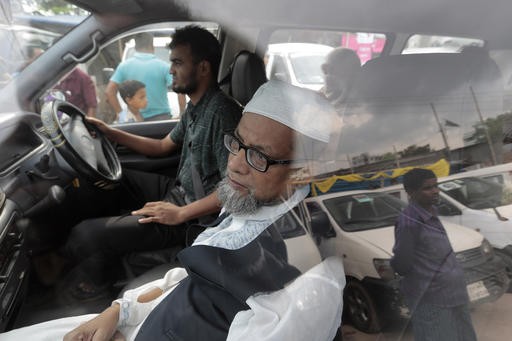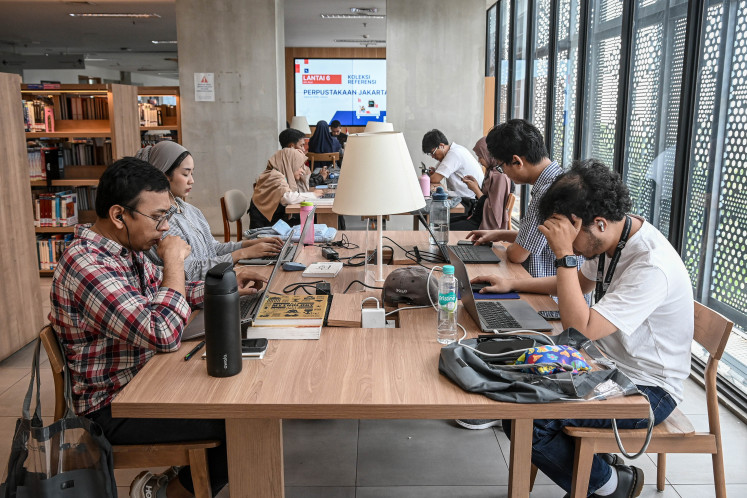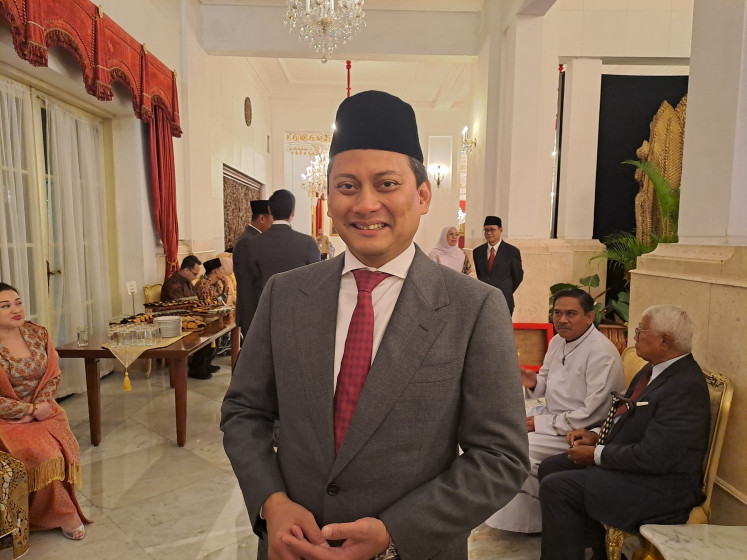Popular Reads
Top Results
Can't find what you're looking for?
View all search resultsPopular Reads
Top Results
Can't find what you're looking for?
View all search resultsUnhealthy party politics
The Golkar crisis was not triggered, at least not directly, by Airlangga's poor results at polls, but by his alleged plan to leave the two pro-government coalitions.
Change text size
Gift Premium Articles
to Anyone
If Indonesia wants to protect what is left of its waning democracy, it needs to keep its party politics healthy through a democratic system that allows for a fair contest for power among competing factions within parties.
Unfortunately, this system does not always work, considering the persistence of clientelism and vote-buying in Indonesian politics. Nevertheless, at least until recently, we still had healthy competition within political parties, with little interference, if any, from the state.
We are therefore deeply concerned by the recent leadership crisis within the Golkar Party, which has shown many signs of state interference. This is alarming in many ways, especially because it is occurring just months before the elections.
Let’s face it, Golkar is arguably the most democratic party in the country despite its dark past as a political vehicle of the New Order that was involved in various forms of vote rigging. The party may not be able to shed its reputation as the party of the oligarchs, but its party politics is competitive enough to allow for meaningful leadership changes. Other major political parties are either fully controlled by certain figures or families, or simply too weak to withstand the power of money, meaning they can be “bought” by wealthy outsiders.
It is hard to imagine anyone other than Megawati Soekarnoputri as leader of the Indonesian Democratic Party of Struggle (PDI-P) and the party’s leadership is not interested in the idea of electing a cadre outside of the Sukarno family. The same could be said about Prabowo Subianto’s power within the Gerindra Party, the Yudhoyonos in the Democratic Party and Surya Paloh in the NasDem Party. The fact that Prabowo and Surya built their political careers through Golkar is a testament to Golkar’s maturity.

With the elections just around the corner, several Golkar cadres have called for an extraordinary congress to unseat chairman Airlangga Hartarto. Airlangga was granted a presidential nomination a few years ago but is failing to boost his popularity.
This crisis was not triggered, at least not directly, by Airlangga's poor results at the polls, but by his alleged plan to leave the two pro-government coalitions, one of which is led by the PDI-P and the other by the Gerindra Party and join the opposition coalition led by the NasDem Party. This speculation arose from the attendance of Golkar executives at a recent NasDem party, which featured a political speech by its presidential nominee, Anies Baswedan.
Power struggle within Golkar is not unusual, but the latest leadership crisis is different. It shows some signs of state interference that could weaken the party’s independence and further undermine the party system as a democratic institution.
In an interview with KompasTV, Luhut Binsar Panjaitan, an influential powerbroker within the State Palace who chairs the party’s advisory board, said he was ready to contest the party leadership poll to replace Airlangga if there was support among members. He argued that the current leadership was “appearing to be selling itself short, offering itself to too many.”
It is worth noting that Luhut quit Golkar when he publicly endorsed then Jakarta governor Joko “Jokowi” Widodo as a presidential candidate. The coordinating maritime affairs and investment minister is now seen more as the right hand of the President than a Golkar party elite with considerable support among the party’s rank and file.
It does not help that as the crisis within Golkar was brewing, Airlangga was summoned by the Attorney General’s Office (AGO) for questioning over his alleged role in a palm oil graft case. It is hard to ignore the impression that the AGO’s move was political, especially when concerns have been raised over what appears to be a worrying trend of the government weaponizing law enforcement bodies for short-term political purposes.
To be clear, we do not know if there is a plot brewing within the State Palace to unseat Airlangga as part of an attempt by the President to interfere in the electoral process. Regardless of whether it is true or not, Luhut’s statement that he is ready to lead Golkar is sending the wrong message to the public, given the political backdrop.
The state should let Golkar sort out its own problems and choose which coalition suits its ideals and interests.
We must keep our party politics healthy.

